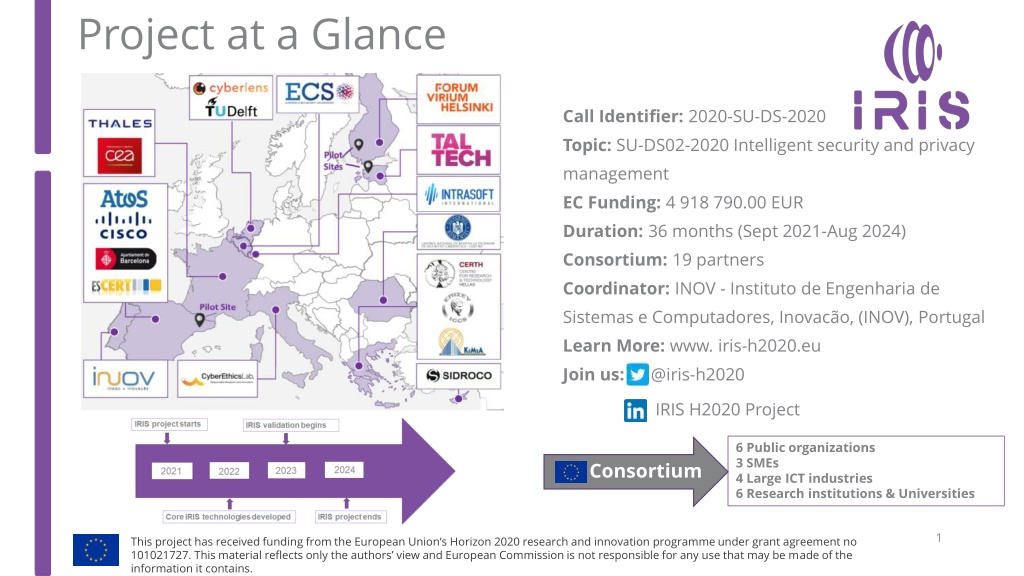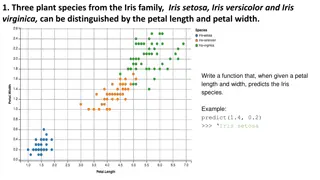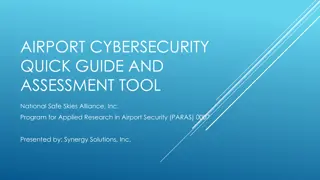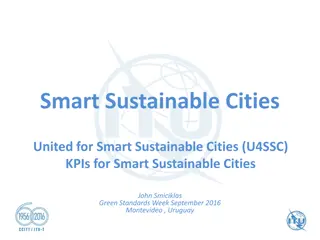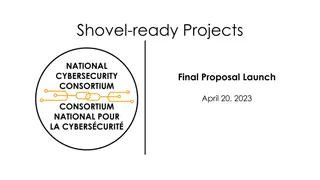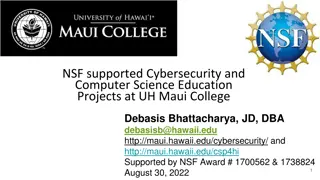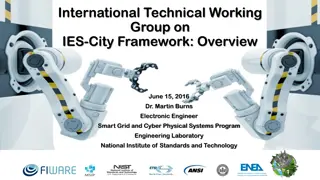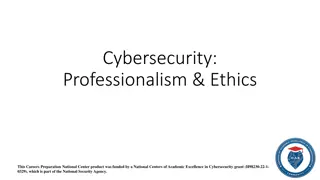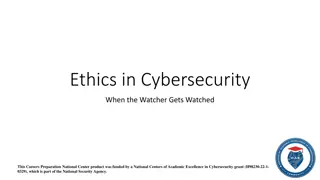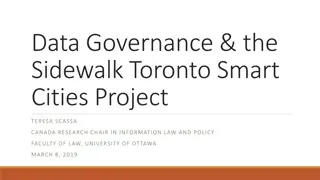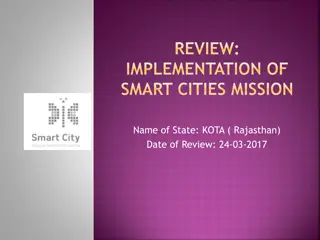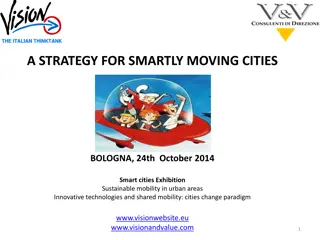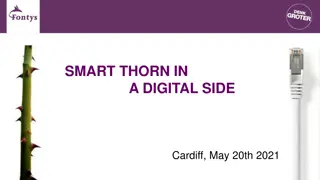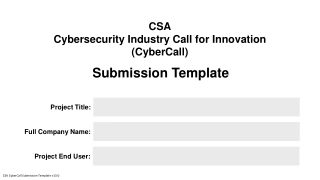IRIS H2020 Project - Enhancing Cybersecurity for SMART CITIES
The IRIS H2020 project is dedicated to enhancing cybersecurity for SMART CITIES by developing a framework that supports European CERT and CSIRT networks in detecting, sharing, and responding to cybersecurity threats in IoT and AI-driven ICT systems. The project aims to minimize the impact of cybersecurity and privacy risks by providing a collaborative platform for stakeholders and offering a free IRIS Platform to national CERT and CSIRTs. With a focus on identifying user requirements, ethics principles, and legal frameworks, the project will demonstrate and validate its integrated platform in three smart city pilot demonstrators. Furthermore, it will ensure widespread communication, scientific dissemination of results, and contribution to relevant standardization bodies.
Download Presentation

Please find below an Image/Link to download the presentation.
The content on the website is provided AS IS for your information and personal use only. It may not be sold, licensed, or shared on other websites without obtaining consent from the author. Download presentation by click this link. If you encounter any issues during the download, it is possible that the publisher has removed the file from their server.
E N D
Presentation Transcript
Project at a Glance Call Identifier: 2020-SU-DS-2020 Topic: SU-DS02-2020 Intelligent security and privacy management EC Funding: 4 918 790.00 EUR Duration: 36 months (Sept 2021-Aug 2024) Consortium: 19 partners Coordinator: INOV - Instituto de Engenharia de Sistemas e Computadores, Inovac o, (INOV), Portugal Learn More: www. iris-h2020.eu Join us: @iris-h2020 IRIS H2020 Project 6 Public organizations 3 SMEs 4 Large ICT industries 6 Research institutions & Universities Consortium 1 This project has received funding from the European Union s Horizon 2020 research and innovation programme under grant agreement no 101021727. This material reflects only the authors view and European Commission is not responsible for any use that may be made of the information it contains.
IRIS Motivation As existing and emerging SMART CITIES continue to expand their IoT and AI-enabled systems, novel and complex threats are introduced. Architecture and behaviour of emerging IoT and AI technologies are not currently well understood by security practitioners, such as CERTs and CSIRTs. 2 This project has received funding from the European Union s Horizon 2020 research and innovation programme under grant agreement no 101021727. This material reflects only the authors view and European Commission is not responsible for any use that may be made of the information it contains.
IRIS Vision The H2020 IRIS project aims to deliver a framework that will support European CERT and CSIRT networks detecting, sharing, responding and recovering from cybersecurity threats and vulnerabilities of IoT and AI-driven ICT systems, in order to minimize the impact of cybersecurity and privacy risks. The IRIS Platform will be made available, free of charge, to the European national CERT and CSIRTs, by the end of the project. 3 This project has received funding from the European Union s Horizon 2020 research and innovation programme under grant agreement no 101021727. This material reflects only the authors view and European Commission is not responsible for any use that may be made of the information it contains.
IRIS Objectives To identify the user, technical and business requirements and design the architecture of an AI threat reporting and incident response system To analyze the relevant ethics principles and legal framework on privacy concerns To develop a collaborative platform for ICT stakeholders and European CERTs/CSIRTs for the successful operation of IoT and AI-enabled ICT systems To demonstrate and validate the integrated IRIS platform across three realistic pilot demonstrators in three smart cities To ensure wide communication and scientific dissemination of the IRIS results, efficient exploitation and contribution to relevant standardization bodies 4 This project has received funding from the European Union s Horizon 2020 research and innovation programme under grant agreement no 101021727. This material reflects only the authors view and European Commission is not responsible for any use that may be made of the information it contains.
IRIS Pilots in Smart Cities Helsinki City: The use case will make use of an energy distribution system to connect Helsinki and Tallinn energy infrastructures: Assess the ability of the IRIS platform to detect malicious information. In addition, this use case will work towards the validation of the Virtual Cyber Range (VCR) component in efficiently educate CSIRT/CERTs on incident response. Tallinn City: AI-enabled infrastructure of autonomous transport systems,composed of autonomous vehicle shuttles (AV shuttle) for public transportation that operate without human drivers and are monitored by a centralized remote operation centre. Within the infrastructure, an AI/ML module that consumes telemetry data is provided and considered as a critical element of the network. Barcelona City: AI computer vision system and an IoT infrastructure deployed at a Tramway station to avoid potential accidents between bicycles and pedestrians getting off the train. Interested in securing the city s IoT and control systems against confidentiality and integrity breaches. 5 This project has received funding from the European Union s Horizon 2020 research and innovation programme under grant agreement no 101021727. This material reflects only the authors view and European Commission is not responsible for any use that may be made of the information it contains.
